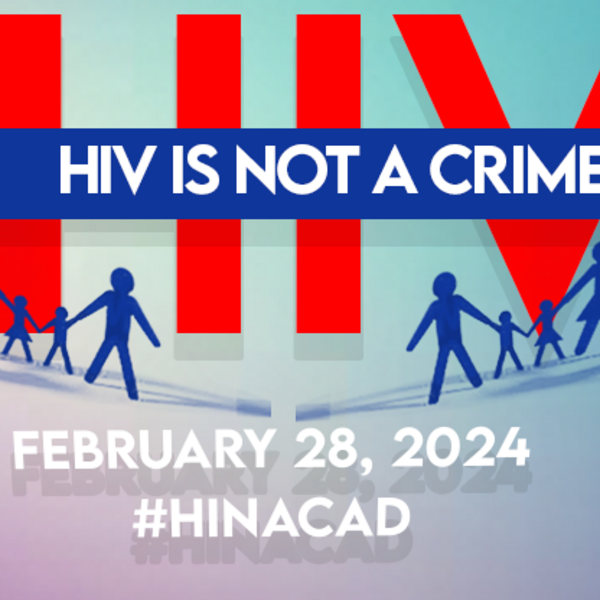
2024 HIV is Not a Crime Awareness Day: Anti-Criminalization and Public Health Systems
Today, February 28, 2024, is the third annual HIV is Not a Crime Awareness Day (HINACAD). This national observance was first recognized in 2022 and was developed by the Sero Project and the Elizabeth Taylor AIDS Foundation. This day is dedicated to advocating for people living with HIV (PLWH) and who are impacted by unjust and discriminatory HIV criminalization laws. These laws wrongfully use a person’s positive HIV status in criminal prosecution and heighten charges or punishments simply because the person or people charged are living with HIV. These laws exist in almost 30 states and disproportionately impact Black and Latine communities, people who use drugs, sex workers, and the LGBT+ community. Additionally, PLWH may experience compounding effects of criminalization due to housing status and HIV status. It is imperative to eradicate these outdated, stigmatizing, and discriminatory policies to promote the health and dignity of PLWH.
NASTAD is committed to advancing the rights of all people and dismantling oppressive systems. NASTAD’s Anti-Criminalization and Public Health Systems fact sheets provide information on the role of public health in addressing the impacts of criminalization and policing. The fact sheets cover the following topics: Criminalization as a Determinant of Public Health, Abolition vs. Reform, and Anti-Criminalization for Public Health Strategies.
The Criminalization as a Determinant of Public Health fact sheet provides an overview of criminalization, its impacts on public health, and the importance of public health practitioners learning more about criminalization. The fact sheet discusses how entering the criminal-legal system leads to worsened health outcomes. It is imperative for PLWH to have access to quality HIV care and treatment services, and involvement with the criminal-legal system can cause disruption due to inadequate services and treatment within carceral facilities.
The Abolition vs Reform for Public Health fact sheet explores the differences between abolition-focused and reform-focused anti-criminalization work. The fact sheet deems reform-based approaches as ineffective for long-term equity work as they often invest in law enforcement rather than in public health and social services. It highlights how abolition-focused work aims to eradicate the roots of the carceral system and mass incarceration practices. Abolition-focused work emphasizes that we cannot advance equity with a narrow focus on mitigating the impacts of criminalization and instead must engage with upstream solutions, such as abolishing punitive policies and practices.
The Anti-Criminalization for Public Health Strategies fact sheet highlights strategies that health departments and other public health agencies are utilizing to push back on criminalization and its health consequences. These strategies include educating new public health practitioners about criminalization, conducting meaningful research collaboration with affected communities, creating opportunities for community leadership and engagement, and using their positions to inform legislative and administrative policy decisions regarding policing, arrest, and incarceration.
HINACAD is an opportunity for health departments, community members, activists, policymakers, and other stakeholders to prioritize and address the issue of criminalization, which is foundational to closing health disparities for PLWH.
For more information about HIV criminalization, view the NASTAD resources below: